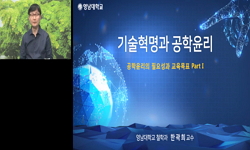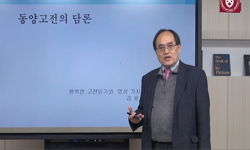Time can be the fundamental basis of religious doctrine and the foundation for a life of faith. Therefore, understanding a religion’s interpretation of time and exploring its perception is accepted as one of the approaches to comprehending its princ...
http://chineseinput.net/에서 pinyin(병음)방식으로 중국어를 변환할 수 있습니다.
변환된 중국어를 복사하여 사용하시면 됩니다.
- 中文 을 입력하시려면 zhongwen을 입력하시고 space를누르시면됩니다.
- 北京 을 입력하시려면 beijing을 입력하시고 space를 누르시면 됩니다.
 OpenAccess
OpenAccess
대순진리회의 시간관 연구 (Ⅰ) : 측정되고 경험되는 시간을 중심으로 = A Study of Daesoon Jinrihoe’s View of Time (I): Focusing on Time as Measured and Experienced
한글로보기부가정보
다국어 초록 (Multilingual Abstract)
Furthermore, Daesoon Jinrihoe posits that Degree Numbers (度數) are a device that ensures the transition from chronos to kairos. Degree Numbers, which are both a law of the universe’s motion and a function of time, were emphasized by the Kang Jeungsan when he advocated for the discarding of old ways and the creation of the new ways. He thereby urged humans to live in accordance with time. Time is also facilitated in the dimension of ritual observances and participation, with examples including prayers, devotional offerings, and holy works (gongbu, 工夫). Those rituals of Daesoon Jinrihoe actively incorporate a unique basis of reason for this style of engagement with time, which is one of the aspects that is held to secure justification.
Time can be the fundamental basis of religious doctrine and the foundation for a life of faith. Therefore, understanding a religion’s interpretation of time and exploring its perception is accepted as one of the approaches to comprehending its principles. Based on this idea, this article delves into how chronos (measured time) and kairos (experienced time) are manifested in Daesoon Jinrihoe. In Daesoon Jinrihoe, the moment when chronos and kairos intersect is considered a moment of spiritual experience. Ethical codes are accomplished in the midst of the process of defining this time as the Heavenly Dao and adjusting human affairs accordingly. These ethics lead individuals towards a religious life. East Asian traditions also apply this logic, but Daesoon Jinrihoe differs in that it emphasizes reinterpreted ethics.
Furthermore, Daesoon Jinrihoe posits that Degree Numbers (度數) are a device that ensures the transition from chronos to kairos. Degree Numbers, which are both a law of the universe’s motion and a function of time, were emphasized by the Kang Jeungsan when he advocated for the discarding of old ways and the creation of the new ways. He thereby urged humans to live in accordance with time. Time is also facilitated in the dimension of ritual observances and participation, with examples including prayers, devotional offerings, and holy works (gongbu, 工夫). Those rituals of Daesoon Jinrihoe actively incorporate a unique basis of reason for this style of engagement with time, which is one of the aspects that is held to secure justification.
국문 초록 (Abstract)
또 이 종교는 크로노스를 카이로스로 넘어가게 만드는 장치 가운데 하나가 도수라고 주장한다. 우주의 운동 법칙이자 시간의 함수이기도 한 도수는 최고신에 의해 이전 것이 폐기되고 새로 만들어진 것으로서, 인간은 그에 맞춘 삶을 살아야 한다고 강조된다. 시간은 참여와 의례 준수의 차원에서 활용되기도 한다. 그 사례가 기도ㆍ치성ㆍ공부다. 이 의례들은 시간과 결합하는 과정에서 특별한 논리를 적극 활용하고 있다. 대순진리회 의례가 정당성을 획득하는 지점 가운데 하나가 여기에 있다.
시간은 교리의 기초이자 신앙생활의 근거가 되기도 한다. 한 종교가 시간을 해석하는 관점을 살피는 일이 그 종교를 이해하는 접근법 가운데 하나로 인정되는 까닭이다. 이 사실을 토대로, ...
시간은 교리의 기초이자 신앙생활의 근거가 되기도 한다. 한 종교가 시간을 해석하는 관점을 살피는 일이 그 종교를 이해하는 접근법 가운데 하나로 인정되는 까닭이다. 이 사실을 토대로, 이 글은 대순진리회에서 크로노스(측정되는 시간)와 카이로스(경험되는 시간)가 어떻게 나타나는지를 조명하였다. 대순진리회에서 크로노스와 카이로스가 얽히는 시간은 영적인 체험이 이루어지는 순간이다. 그 시간을 천도(天道)로 규정하고 인사(人事)를 거기에 맞추려고 하는 속에서 윤리가 성립한다. 그 윤리는 인간에게 종교적 삶을 인도한다. 동아시아 전통도 이런 논리를 가지고 있지만, 대순진리회는 재해석된 윤리를 강조한다는 데에서 차이가 있다.
또 이 종교는 크로노스를 카이로스로 넘어가게 만드는 장치 가운데 하나가 도수라고 주장한다. 우주의 운동 법칙이자 시간의 함수이기도 한 도수는 최고신에 의해 이전 것이 폐기되고 새로 만들어진 것으로서, 인간은 그에 맞춘 삶을 살아야 한다고 강조된다. 시간은 참여와 의례 준수의 차원에서 활용되기도 한다. 그 사례가 기도ㆍ치성ㆍ공부다. 이 의례들은 시간과 결합하는 과정에서 특별한 논리를 적극 활용하고 있다. 대순진리회 의례가 정당성을 획득하는 지점 가운데 하나가 여기에 있다.
목차 (Table of Contents)
- Ⅰ. 여는 글
- Ⅱ. 크로노스와 카이로스
- Ⅲ. 크로노스에서 카이로스로
- Ⅳ. 카이로스의 전개: 도수(度數)
- Ⅴ. 카이로스의 유형들
- Ⅰ. 여는 글
- Ⅱ. 크로노스와 카이로스
- Ⅲ. 크로노스에서 카이로스로
- Ⅳ. 카이로스의 전개: 도수(度數)
- Ⅴ. 카이로스의 유형들
- Ⅵ. 닫는 글
동일학술지(권/호) 다른 논문
-
신종교의 영상 콘텐츠 활용 현황과 과제, 그리고 제언 : 영화 <화평의 길>과 대순진리회박물관의 영상물을 중심으로
- 대진대학교 대순사상학술원
- 박종수
- 2024
- KCI등재
-
종교박물관의 전시 및 교육프로그램 개발 : 대순진리회박물관을 중심으로
- 대진대학교 대순사상학술원
- 김진영
- 2024
- KCI등재
-
해월의 동학 도통전수 담론 연구 : 문헌 고증을 중심으로
- 대진대학교 대순사상학술원
- 박상규
- 2024
- KCI등재
-
- 대진대학교 대순사상학술원
- 김탁
- 2024
- KCI등재




 RISS
RISS







